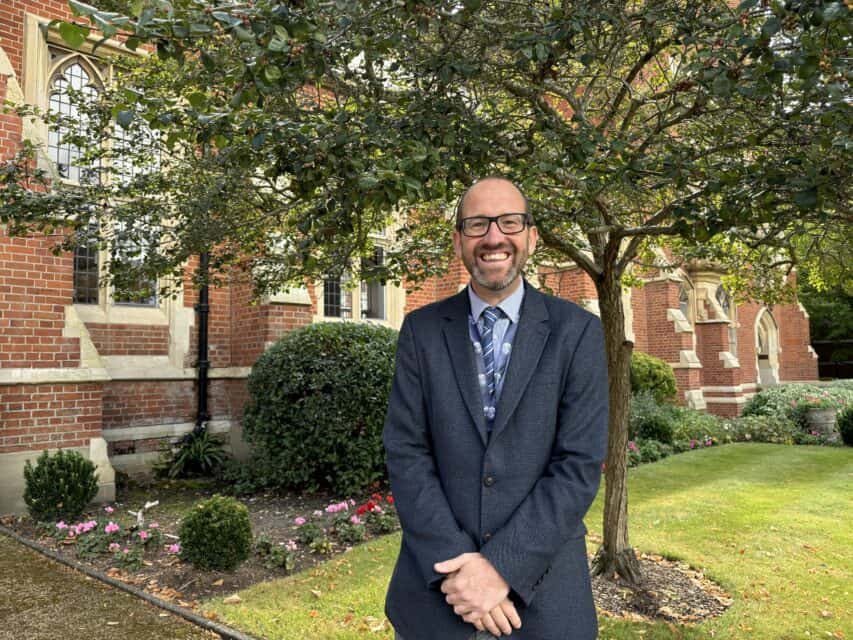Mark Harper became the Minister for Immigration in the UK in September 2012. He spoke to us about the contentious UK immigration rule changes, amid a government ambition to reduce net migration while attracting the “Brightest and Best” international students to the UK.
Сư�洫ý: When the Coalition came to power in 2010 it tightened student visa rules to crack down on visa fraud. What was wrong with the rules previously?
MH: The student visa regime we inherited was open to widespread abuse. It neither controlled immigration nor protected legitimate students from poor quality sponsors. We are the first government to tackle abuse of the student route — where too many institutions sold immigration not education. This isn’t fair on legitimate students. Our reforms have tackled abuse head on while favouring universities, to ensure we remain open to the brightest and the best.
Сư�洫ý: Indian undergraduate enrolments at UK universities fell by 23.5% in 2011/2012 – something most put down to the abolition of generous post-study work rights. Is the government concerned?
MH: We welcome the brightest and best Indian students coming to the UK’s world class universities. The from January show applications from Indian students are up 19% year on year. There is also no limit on the number of Indian students who can stay and work in Britain after finishing their degree if they are doing a graduate job paying £20,000 per year or more.
“The drop in the number of Indian students should be seen in the context of very steep rises before then”
The drop in the number of Indian students should be seen in the context of very steep rises before then. The number of Indian students admitted to the UK doubled between 2008 and 2009 (from 30,800 to 61,200 – total study admissions). Indian nationals still account for nearly 10 per cent of students coming to the UK from outside of Europe – second only to China.
Сư�洫ý: Many, including Tories, say foreign students should be removed from the net migration count, given their importance to the UK (financially and culturally). Why won’t the government consider it?
MH: Students will remain in the net migration statistics because they are not temporary visitors. They have an impact on communities, public services and infrastructure. We are determined to prevent abuse of the student route as part of our plans to get net migration down to the tens of thousands. But we are not harming genuine students – latest student visa and UCAS application figures show that our changes are having the right effect. More university students are coming here and bogus students are being kept out. There is no limit on the number of students who can come to the UK.
Сư�洫ý: Private language schools and colleges cater to thousands of international students each year but face tougher student visa rules than state providers. They have been many closures since 2011. Are there any plans to redress the policy imbalance?
MH: This government recognises the important contribution that international students make to the UK’s economy, and to making our education system one of the best in the world. The UK’s education system is one of the best in the world but to maintain this reputation it is vital that we tackle the abuse of the student route, while making sure Britain remains open for business.
Too many institutions were selling immigration not education and since we have tightened our rules over 500 colleges have lost the ability to bring in international students.
There has been a small increase (1%) in the number of sponsored student visa applications for the University sector in the year to September 2012, and a further increase (12%) in student visit visas. It’s clear that international students continue to come to the UK’s world renowned universities. [more>>]
MH: The purpose of the student visitor route is to allow international students to come to the UK to study for a short period of time. It is important for the UK economy and the country’s reputation as a world class education provider that we provide this option for students to study in the UK more flexibly. As with all routes we will continue to monitor and review its effectiveness. We will refuse any student visit visa application if we have doubts about their motivation for coming to the UK to study or their intention to leave.
Сư�洫ý: Are you concerned the UK could be losing its share of the global student market? How could we be better promoting British education overseas?
MH: The 9.6% increase in non-EEA university student applications in the latest UCAS figures (January) is further proof that the UK remains open to the brightest and the best international students. In particular, numbers from India and China have seen big increases. This shows that, despite stories to the contrary, students continue to want to come to the UK to study at our world class universities. We have tackled abuse of the student route head on — without affecting genuine students. By protecting the reputation of the British education system we will be able to compete in a global race.
“The government is currently developing an Education Sector Industrial Strategy”
Сư�洫ý: Which countries do you believe the UK is competing with in the international education marketplace and how should we compete? Can you talk about the new Education UK unit – what do you hope this will achieve?
MH: The government is currently developing an Education Sector Industrial Strategy (ESIS), to support growth in UK international education activity. The ‘Education UK Unit’ will help the sector to take advantage of high value overseas education opportunities. It will respond to large-scale opportunities which could range from a major campus to support for delivering a whole education system. Initially the unit will focus on Higher Education and vocational services, with the longer-term intention of supporting trade in all aspects of education.
Сư�洫ý: After overseeing a big change in policy and compliance culture, do you feel that your department has a better understanding now of the UK’s international education sector? Which associations do you see doing great work to promote the sector at home and overseas?
MH: The government supports the international activities of our Higher Education institutions, working closely with the education sector, for example through Ministerial engagement with overseas counterparts, and education agreements with countries like India, Brazil and China. The Home Office, UKBA, Department for Business Innovation and Skills, British Council and the Foreign and Commonwealth Office all work together to ensure prospective overseas students understand all the benefits which the present visa rules offer them, including the current visa opportunities for working in the UK after they graduate.



